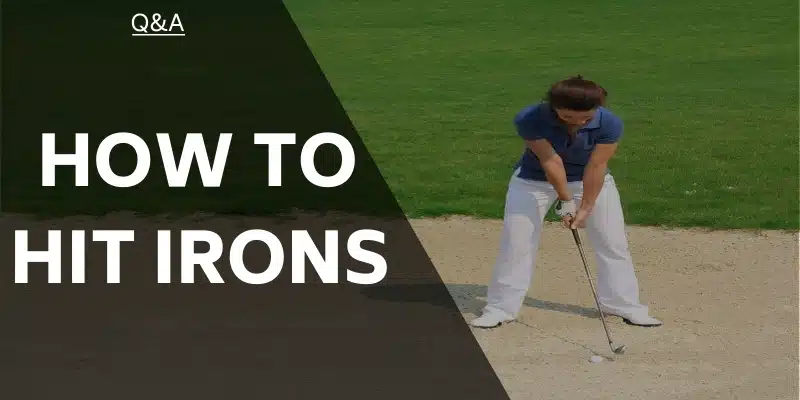After a fair amount of usage, golf grips will start to lose their spark. Hand-sweat, dirt, suncream, and hot/cold temperatures can all affect your grip, causing slipperiness and a loss of traction. This will affect your swing and ultimately the quality of your shots.
It’s important, therefore, to take the time to periodically clean your golf clubs. Not only does it help you to maintain your best performance, but it also extends your club’s life, saving you money on grip replacement.
Fortunately, it takes hardly any time or effort, and it can be done with common household cleaning supplies. Here are two methods we recommend for cleaning your golf grips.
Method 1: Warm Water and Soap
For the most cost-efficient method of cleaning your grips, you can give them a good ol’ fashioned scrub.
Grab a medium-sized bucket and fill it with warm water (not too hot) and mild dish soap. You could also use your kitchen sink.
For the next step, we recommend using a soft scrub brush. You could also use a toothbrush, though it might take a bit longer. Dip your brush into the soapy water and then brush your grip all over. This could take a few seconds or a few minutes, depending on how dirty your grip is.
Next, you’ll want to rinse your grip with warm, soap-free water. Make sure you get rid of any residual soap.
Finally, use a cloth or towel to wipe the grip dry. It’s not advised to let it air dry, as it could end up leaving marks and doing some damage.
Method 2: Grip Cleaning Wipes
A quicker and easier method, albeit a slightly more costly one, is to purchase wipes that are specifically designed to keep your golf grips looking spick and span.
With minimal supplies, you can give your grips a thorough yet gentle clean. You’ll be removing every drop of dirt and sweat, and extending your grip’s life in the process.
We recommend these Karma Golf Grip Cleaning Wipes, which come in a pack of 15. With one wipe, you should be able to clean at least five of your grips. If your grips are quite filthy, however, it might be less. They’re also quick to dry – your grips should be clean and ready to roll within minutes.
Just make sure you reseal the pouch in between usage. If the wipes dry out, they’ll lose their effectiveness. You could also put the pack into a zip lock bag to make sure that they’re properly sealed.
How Often Should You Clean Golf Grips?
It really depends on how often you play, your grip style, your hand pressure, and the conditions in which you play.
If you play, on average, once a week, then you should consider cleaning your grips once a month. If you’re more of a three or four times a week go-getter, you might need to dedicate some more cleaning time accordingly.
In terms of grip style, there are four main types: velvet, corded, multi-compound construction, and wrap.
- Velvet grips are smooth the touch, and are effective at repelling moisture. They generally don’t attract too much dirt, so you should get away with not having to clean them too often.
- Corded grips contain a cord material to make them more durable and sturdy, forming a rough surface to provide extra traction. While the material is generally repellent of moisture, the rougher surface is prone to dirt collection, requiring more frequent cleaning.
- Multi-compound Construction grips utilize the benefits of both rubber and cord. Typically, they feature rubber material for the lower hand, increasing feel and responsiveness, and cord material for the upper hand, providing superior control in all weather conditions. Where there’s a cord, there’s usually cleaning to be done.
- Wrap grips are considered to be of the old-fashioned variety – stylish, in a retro kind of way, but not overly practical. They don’t hold up well in wet conditions, and the material tends to acquire dirt rather efficiently.
Your hand pressure also affects how often you should clean your grips. If you apply a heavy amount of hand pressure, for instance, then you are likely transferring greater volumes of sweat to your grips, and thus should consider cleaning them more often.
But perhaps the biggest factor that decides how often you should clean your grips is the conditions. In the winter, your grips are more likely to get muddy, so will require more frequent cleaning. If you live somewhere hot and muggy, like Florida, then you might need to clean more often to combat the sweat.
How Often Should You Change Your Grips?
Even if you’re a dab hand at keeping your clubs clean, they will eventually succumb to the ravages of time (like the rest of us!).
Realistically, the average weekend player could probably go two or three years without changing their grips. However, experts recommend that golf grips are changed once a year, or once every 40 or so rounds.
When you are cleaning your grips, look out for any signs of wear and tear, such as cracks, smooth spots, hard areas, or shiny spots. These are indicators of the grip losing its traction. Before you know it, the club will be flying out of your hands mid-swing. And sadly, once your grips start fading, there’s not much to be done to save them.
With a selection of tools you might happen to have lying around in the garage, you could replace your grips yourself – here’s a video guide on DIY golf club regripping. Or, you could ask at your local club – there’s sure to be someone who can change your grips for you.
We should also note that over-cleaning your grips could result in them wearing out faster – especially if you’re scrubbing them with a brush. Take care not to scrub too hard or too often, as you could wear out the material.
Final Thoughts
It’s inevitable that golf grips are going to suffer from moisture and mud, but the good news is that it isn’t too difficult or time-consuming to clean them.
You could use the cheap and easy soap and hot water method, or you could spend a few bucks and use the even easier method of grip cleaning wipes. As a general rule, try to clean them once a month, or perhaps more, depending on your grip style or your local conditions.
Related Articles
- How To Grip a Golf Club
- How to Clean Golf Balls. Your Guide For Spotless Balls
- How Much Does it Cost to Regrip Golf Clubs & When Should You Do It?
Nick is the founder of GolfSpan and an avid golfer. He's not quite a pro but has over 15 years of experience playing and coaching golfers worldwide. His mission is to bring the golfing community a better experience when it comes to choosing the right golf gear and finding the right setup for your game.






